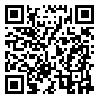Volume 10, Issue 4 (Winter 2007)
Physiol Pharmacol 2007, 10(4): 313-321 |
Back to browse issues page
Download citation:
BibTeX | RIS | EndNote | Medlars | ProCite | Reference Manager | RefWorks
Send citation to:



BibTeX | RIS | EndNote | Medlars | ProCite | Reference Manager | RefWorks
Send citation to:
Kerachian N, Alaee H, Gharavi-Naini M, Pilevarian A, Moghimi A. Effects of alcoholic extract of Avena sativa, Hypericum perforatum, Passiflora incarnata and Lavandula officinalis on symptoms of morphine withdrawal syndrome in rats. Physiol Pharmacol 2007; 10 (4) :313-321
URL: http://ppj.phypha.ir/article-1-290-en.html
URL: http://ppj.phypha.ir/article-1-290-en.html
Abstract: (17591 Views)
Introduction: Previous studies have suggested that plants Avena sativa, Hypericum
perforatum, Passiflora incarnata and Lavandula officinalis can affect nervous system and
reduce neural excitability and pain. The aim of this study was to evaluate the effect of a
mixture of these four plant’s alcoholic extract on morphine withdrawal symptoms.
Methods: Experiments were performed on four animal groups of Wistar rats weighing
250-300 g (N= 7). For addiction induction, increasing doses of morphine were injected
(Intraperitonealy (i.p.)) during nine days. After scientific identification, the plants were
dried in room temperature and pulverized. Four plants powder were mixed with same
proportion and then extracted using ethylic alcohol 70% by percolation method and then
concentrated by rotary, and administrated at the dose of 400 mg/kg in all experimental
groups. Morphine withdrawal syndrome symptoms include standing, stretching, jumping,
Limbs shaking, blinking, ptosis, were recorded for 30 minutes.
Results: Analysis of results showed a significant reduction of withdrawal symptoms in
experimental groups (post and co -treated) in comparison with sham group.. Administration
of extract cocktail prior to naloxone induced precipitation of withdrawal syndromes,
reduced the expression of syndrome signs.
Conclusion: It seems that administration of extract cocktail of these four plants inhibits
both development and expression of morphine physical dependence symptoms. Considering
the effects of different substances of above mentioned plants on excitability and anxiety
mechanisms of the brain, the results of this study support the traditional application of these
plants.
Keywords: Morphine physical dependence, Avena sativa, Hypericum perforatum, Passiflora incarnata, Lavandula officinalis, Rat.
Type of Manuscript: Experimental research article |
| Rights and permissions | |
 |
This work is licensed under a Creative Commons Attribution-NonCommercial 4.0 International License. |





